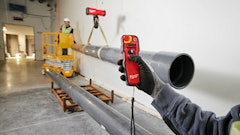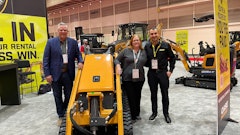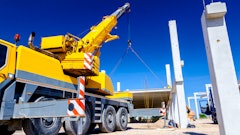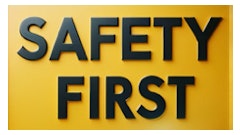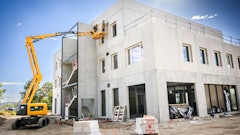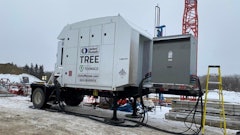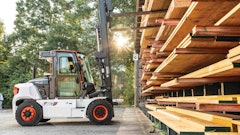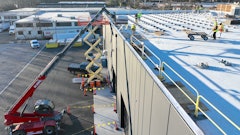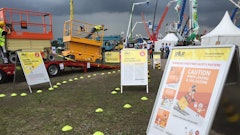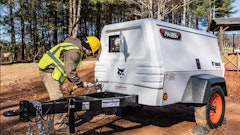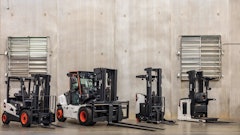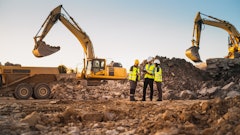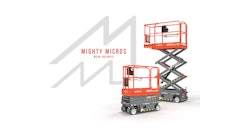
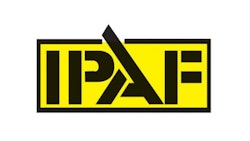
Frank discussions on what is appropriate training for aerial work platform (AWP) operators and how to keep operators safe marked the first-ever IPAF U.S. Convention held on November 1 and 2 in Chicago.
Brad Boehler, Skyjack president, provided industry data and statistics that identify leading potential hazards that must be incorporated in risk assessments and method statements to protect workers from these risks. AWPs are very safe and recognition and avoidance of known hazards will better ensure operator safety.
"Hands-on training is necessary; an aerial lift is not a car," said John Newquist, OSHA assistant regional administrator for cooperative and state programs. He was speaking on aerial lift safety, reminding employees of their duty to provide adequate training.
In another presentation, Paul Penzkover, safety director at Mortenson Construction, highlighted some common problems on sites: unqualified personnel, using personnel platforms to hoist materials, non-approved modifications/attachments, climbing/standing on rails, unstable or improvised ground conditions, and travelling while elevated.
Contractors need to bolster training and have a plan to deal with reality, said Penzkover. "Don't leave it up to the workers to figure it out," he stated. "Select equipment suited for working conditions. Protect assets by investing in your workforce."
The state of AWP training in North America was also taken up by Lindsey Anderson, editor of Access, Lift & Handlers.
"The U.S. is the home of the aerial business," said Anderson. "But why are we lagging in AWP training? Why are we not leading the world in training? This is a call to arms: Training needs to improve – from the top by establishing a safety culture, in the middle through implementing programs and initiatives, down to ensuring that end-users are properly trained."
IPAF itself does not deliver training. There is a training program provided independently by some IPAF members in North America, which include rental companies, manufacturers and training organizations. This training program is managed by IPAF's North American subsidiary, AWPT (American Work Platform Training).
Delegates also heard presentations on sustainability, rental statistics, accident research, the Latin American market and mast climbing work platforms (MCWPs).
Kevin Groman, senior vice-president at RSC Equipment Rentals, spoke on "Strategically Approaching Sustainability", citing an example of how the company's trash and expense audit led it to review its use of tires to save millions of dollars on dealing with waste and recycling. Groman made a challenge to all to look at their business and discover how they can, through a sustainability plan, improve their bottom line and simultaneously stop filling their trash bins.
Some of the challenges and opportunities in Latin America were presented by IPAF's Romina Vanzi, who is based in Chile, using statistics such as the Big Mac vs. AWP rental rate index. While there are opportunities in the sale of new and second-hand equipment and spare parts, access to credit is low in some Latin American countries, and qualified maintenance personnel are needed.
About 100 people attended the Convention, ranging from rental companies and manufacturers, to unions and end-users, and reactions to the event were positive.
One of the attendees, Jenny Lescohier, editor of Rental Product News, said, "I've been covering these topics for years and from my perspective, the biggest obstacle is no longer a lack of information or a failure among those in the industry to believe in the necessity for safety and training. Right now, I believe the problem boils down to a lack of follow through. There needs to be a shift in thinking where safety and comprehensive training go from being 'nice to haves' to jobsite imperatives. The solution to the problem remains elusive, but events like the IPAF Convention go a very long way toward finding it. There's nothing like gathering as many stakeholders as possible together in one room to begin the process of building consensus. I look forward to next year's gathering."
"IPAF's first major event in the U.S. generated lots of interest from a wide range of people in the industry, and we hope to hold this annually," said IPAF CEO Tim Whiteman.
About IPAF
The International Powered Access Federation (IPAF) is a not-for-profit members’ organization that promotes the safe and effective use of powered access equipment worldwide. Members include rental companies, manufacturers, distributors and equipment owners. More information at www.ipaf.org.








